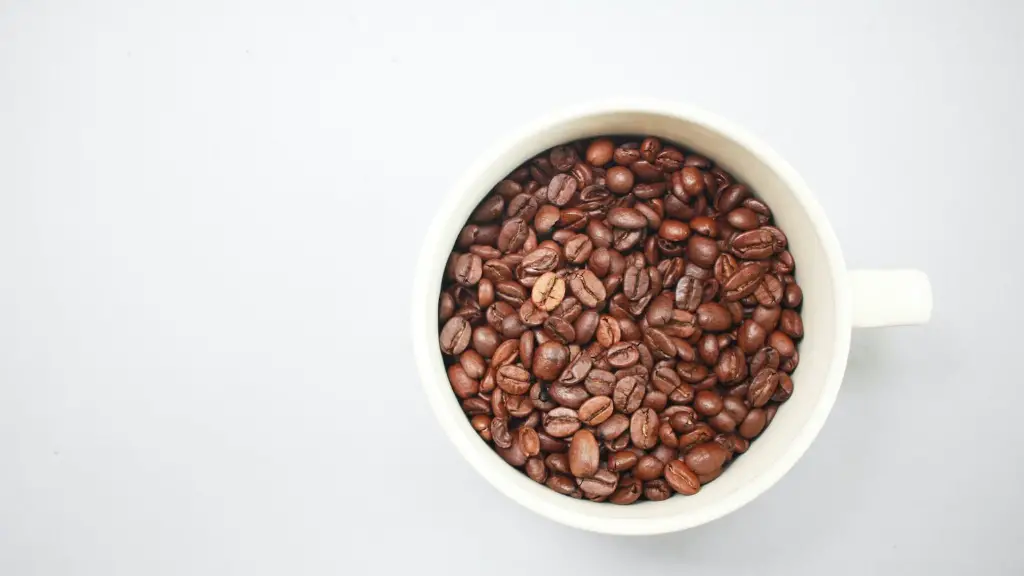1. Benefits Of Avoiding Coffee
Coffee has its fair share of benefits, but avoiding coffee altogether has its own array of health benefits. Caffeine, which is found in coffee, has been found to produce bad side effects such as increased blood pressure, headaches, insomnia and even digestive problems. In addition, drinking too much coffee can lead to dependency, as the body craves caffeine and will experience withdrawal symptoms if coffee is not consumed. Furthermore, coffee can also contain acid that can be damaging to tooth enamel and can also lead to dehydration. By avoiding coffee, individuals can benefit from improved mental clarity, better digestion, and improved sleep.
2. Replacing Coffee
Apart from its array of health benefits, another great advantage to avoiding coffee is the opportunity to replace it with other healthy, energizing options. Many individuals replace regular coffee with green tea or herbal tea which, like coffee, can be a great energizer and also provide numerous health benefits. Green tea’s antioxidants, including polyphenols, flavonoids and catechins, are also known to reduce inflammation and protect against diseases. Additionally, with advancements in food technology, there are a variety of alternative products on the market, such as chicory root coffee, that provide both taste and health benefits.
3. Ways to Avoid Coffee
While avoiding coffee may seem like a daunting task, there are several ways to make it easier.
Firstly, individuals can gradually decrease the number of cups of coffee that they consume per day, over a two week period, until they are completely off coffee. This can help to reduce the intensity of the caffeine withdrawal symptoms.
Secondly, individuals can also try to make their coffee less appealing by replacing it with healthier alternatives. They can try adding a splash of almond milk, half and half, or even cinnamon or nutmeg to their coffee to make it less inviting.
Thirdly, individuals can also opt for caffeine-free drinks, such as hot chocolate or herbal teas. These drinks are also available in decaffeinated options.
4. Change of Habits
In addition to replacing coffee with healthier alternatives, individuals can also try to change their daily habits, in order to alleviate the need for coffee. These changes can include taking breaks throughout the day in order to avoid fatigue, exercising regularly to boost energy levels, and getting enough sleep to ensure proper rest and relaxation.
Making these changes can help to eliminate the need for caffeine, as the body feels better rested, stronger, and energized. Additionally, replacing fast food with healthier snacks such as fresh fruits, nuts and seeds, and drinking plenty of water, are also great practices for avoiding coffee.
5. Managing Cravings
It is not unusual to experience cravings for coffee when trying to avoid it, but there are several ways to manage these cravings. Firstly, individuals can try to distract themselves, such as talking a walk, listening to music, or even practicing meditation.
Secondly, individuals can also try to identify the cause of their cravings and to address these issues. They may find that they are reaching for coffee due to stress or boredom, and they should find other healthier ways to address these issues.
Finally, individuals can also practice mindful eating, as this has been found to be an effective method to manage cravings.
6. Identifying Coffee Addictions
Coffee addiction can range from mild to serious, and it is important to be able to identify the signs in order to better manage the addictions. If individuals experience withdrawal symptoms when they stop drinking coffee, such as headaches, this could be an indication of an addiction. Additionally, if individuals find that they are relying on coffee more and more in order to stay awake during the day, this may also indicate an addiction. Finally, if individuals find that they are unable to enjoy social activities without coffee, this is a sign that an addiction is present.
7. Seeking Professional Help
If individuals are having difficulty avoiding coffee and are concerned that they may have an addiction, it is important to seek professional help. Professional help may be necessary in order to help individuals address the underlying issues that may be causing the addiction. Treatment plans may involve cognitive behavioural therapy, lifestyle modifications, and even medication, in order to help individuals manage their addiction and establish healthier habits.
8. Social Pressure to Drink Coffee
One of the most common explanations for why individuals may find it difficult to avoid coffee is the social aspect of it. Caffeine has become such an integral part of social gatherings, and as a result, individuals may feel peer pressure to conform to these norms. However, individuals should not feel obligated to drink coffee just to fit in. There are many other equally enjoyable options that can be equally energizing and more beneficial to one’s health.
9. Utilizing Technology
In the modern world, there are many helpful tools and technologies that can be used to help individuals quit coffee and avoid the conditioned effects. For instance, individuals can use tracking apps to better manage their coffee consumption and monitor the effects that coffee has on their body. They can also utilize meditation and mindfulness apps to deal with any cravings.
10. Making a Lifestyle Change
Finally, individuals should also take into consideration the bigger picture and establish healthy habits as part of a lifestyle change. This is a crucial step in avoiding coffee in the long run, as it is important to build healthier habits that are more sustainable in the long run. This could include creating a fitness plan and eating nutrient-rich foods, as well as practicing mindfulness and staying hydrated.
11. Identifying Alternatives
There are many alternative beverages that can offer all of the energizing benefits that come from coffee without any of the adverse effects. Some good alternatives include energy drinks, protein shakes, smoothies, herbal teas, and green tea. These options offer great benefits and also provide the energy boost that many individuals are looking for.
12. How to Avoid Coffee in The Morning
One of the best ways to avoid coffee in the morning is to start the day with a healthy breakfast. Eating a nutritious breakfast will provide sustained energy throughout the day, and can help individuals to avoid the need for coffee. Eating breakfast should also be combined with mild exercise in the morning, such as a walk or a yoga session, both of which can help to boost energy levels and give a great start to the day.
13. Eating Habits and Metabolism
Eating healthy, balanced meals throughout the day is a great way to maintain energy levels and prevent fatigue. Eating regularly, at the same time each day, can help individuals to regulate their metabolism and promote a healthy lifestyle. Additionally, individuals should make sure that they are getting enough vitamin B-12 and other nutrients, which are essential for energy and proper functioning of the body.
14. Avoid Coffee as Part of a Routine
In order to make avoiding coffee easier, individuals may find that it helpful to incorporate it as part of their daily routine. Replacing coffee with healthier alternatives, such as herbal teas, can be a great way to get into the habit of avoiding coffee. Incorporating exercise, such as yoga and stretching, into their daily routine can also help individuals to combat fatigue and provide the energy they need to get through the day.
15. Stress Management
Finally, avoiding coffee can also be easier by managing stress levels. Stress can lead to fatigue and the need for coffee, in order to get through the day. Taking breaks throughout the day, and participating in activities such as yoga and meditation, can help to reduce stress and combat fatigue. Additionally, talking to friends and family, and getting enough sleep, can also help individuals to avoid the temptation of coffee.



